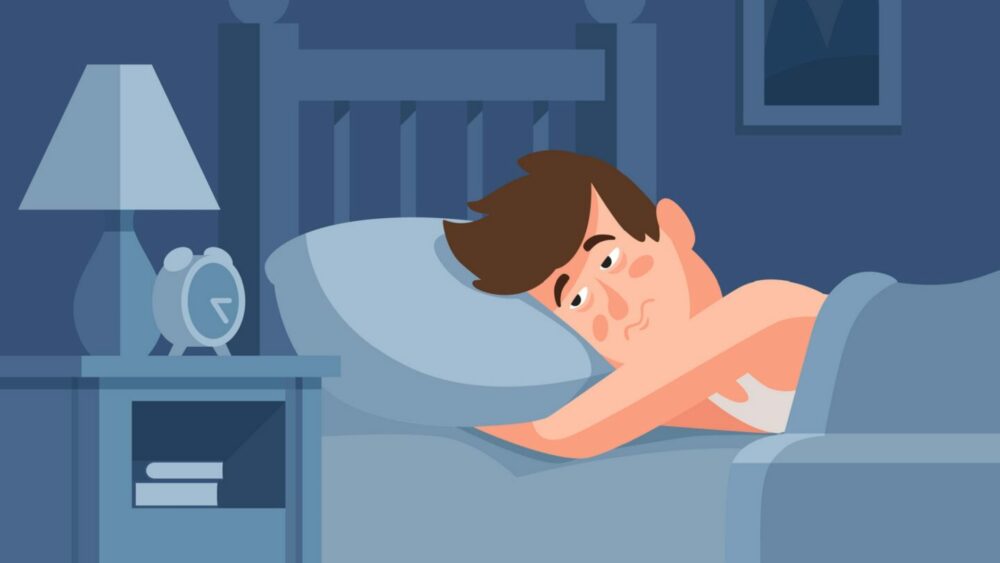What is sleep-deprivation?
Sleep deprivation is a common disorder among a considerable number of people around the world. Some people do not have enough time to sleep due to working long hours to fulfill their families’ responsibilities.
Workaholic people always tend to neglect their sleep routine. Moreover, 51 percent of people claim to suffer from sleep deprivation worldwide.
Furthermore, sleep deprivation can cause other physical and mental health problems, which you will explore in the below guide.

Besides, there are three types of sleep deprivation:
- Chronic sleep deficiency or insufficient sleep
- Chronic sleep deprivation
- Acute sleep deprivation
Additionally, many people worldwide stay in the misconception; they will recover their lost sleep during the weekend if they have not slept enough during the week, 7-8 hours daily. This statement is invalid, as it usually takes up to 4 days to recover a one day lost sleep.
Therefore, it is crucial to know everything about sleep deprivation to ensure you are sleeping enough and avoiding any harmful health condition that can affect you in the long term. Fortunately, there are many ways that you can overcome sleep deprivation, such as limiting those interesting TV serials before going to bed or going to a yoga retreat.
Causes of Sleep Deprivation
It is crucial to be aware that sleep deprivation is not a health condition. Instead, sleep deprivation is triggered by many people due to other health illnesses, accidents, or trauma. It is also vital to be conscious that sleep deprivation usually occurs due to voluntary choices by people.
For example, someone chooses a work where he or she has to work on shift-hours. Hence, making it impossible to follow a daily sleep routine eventually leads to sleep deprivation.
However, there exist several causes of sleep deprivation, and those are:
- Suffering from apnea
- Narcolepsy disorder
- Restless legs syndrome
- Sleep apnea
- Side effects of medications
- Excessive work (Workaholic)
- Watching too much TV
- Stress
- Depression
- Anxiety
- Schizophrenia
- Cancer
- Stroke
- Alzheimer
- Chronic pain
Symptoms of sleep-deprivation
As mentioned earlier, sleep deprivation occurs mainly due to voluntary choices or other health conditions that trigger it.
However, several symptoms are evident to understand that someone is suffering from sleep-deprivation.
Common symptoms of sleep-deprivation:
- The excessive urge to sleep during the day
- Daytime impairment
- Inability to concentrate
- The process of thinking becomes extremely slow
- Mood swings
- Falling asleep in an instant during the day
- Irritability
- Lack of energy
- Start feeling anxious and stressed
- Unable to pay attention
- Not able to concentrate and talk correctly between a conversation
- Excessive yawning
- Lessened sexual desire
- Fatigue
How sleep deprivation harmfully affects the human body?
If someone suffers from sleep deprivation, it is compelling to seek professional help immediately. As sleep deprivation can harmfully affect the human body’s health conditions such as:
- Weight loss or weight gained
- Prone to infections as the immunity system is affected
- Respiratory problems
- Can cause diabetes due to excess sugar intake
- Risk of developing cardiovascular problems
- Fertility health conditions
- Mood swings
- Depression
- Anxiety
- Stress
- Drowsiness
- Sleep apnea
- Hypertension
How to overcome sleep-deprivation?
Several ways can assist in overcoming sleep deprivation, such as:
Develop a daily routine sleep pattern
If you feel that you are not sleeping enough, you imperatively need to prepare a daily regular sleep pattern. For example, you need to be in bed at 10.00 pm, no matter what happens.
Change your lifestyle
You can change your lifestyle as this will incredibly help you to overcome sleep deprivation. For example, you can be more physically active, eat a proper diet, change your work shifts, and avoid watching late-night movies. It is also advisable not to eat at least 2 hours before going to bed. Quitting tobacco and alcohol is also a solution to help you get rid of sleep deprivation.
Meditation
Meditation is of great help to provide you with a calm mind. You imperatively need to consider performing breathing exercises to reduce potential tension over the body. Moreover, if you find it challenging to meditate alone, you can always opt for a yoga retreat. The yoga retreat will provide you professional guidance that will undoubtedly help you eliminate unnecessary tensions leading your body to sleep deprivation.
Medications
In severe cases, especially if the above-mentioned natural treatments do not seem to work for you, you need to seek professional help immediately. Doctors may prescribe some sleeping medications or pills that can help you balance your anxiety or depression.
However, in other cases, sleep deprivation may be due to different reasons, such as health conditions mentioned earlier. In this type of case, doctors are the best option to diagnose the precise cause of your sleep deprivation.
Final Thoughts
Now you are aware of everything about sleep deprivation. You can try the earlier mentioned tips on how to overcome sleep deprivation. However, if nothing seems to work, it is advisable to visit a doctor.

